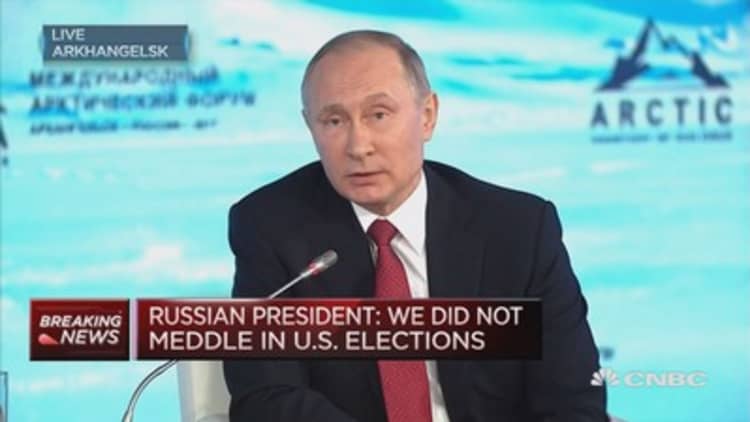
Russian President Vladimir Putin is calling out U.S. Defense Secretary James Mattis for "idle talk" after he accused Russia of "aggressive behavior."
Putin said Russia's military capabilities are merely defensive.
Russia's development of new technology and expansion of military bases are all at a local level, taking place on Russian soil, Putin told CNBC at the Arctic Forum in Arkhangelsk, Russia.
However, he said Washington's continued military development, including in Alaska, is on a global scale.

"They (the U.S.) develop their own (military), which we believe poses a certain threat to us," Putin said through an interpreter.
"Our moves are of a local nature and their moves are of (a) global nature.
"They've been developing their missile defense system there, building it up, and this system is one of the overarching concerns of global security today.
"It's not a defense system. No, it's part of the nuclear forces of theirs, installed in the periphery. It's not on the defensive, it helps minimize our response."
Putin dismissed comments of Russia's "aggressive behavior", made by Mattis shortly after joining office, as "ridiculous" and nonsensical.
"We have no intention of starting a war in the Arctic. We don't want to compete with the U.S. We all know that the U.S. spends more on defense than the rest of the world," Putin said.
He added, however, that he would consider working with the U.S. and combining defense efforts to fight international terrorism.
"We certainly have a common ground fighting international terrorism and the very fact that President Trump thinks it's important to do that is totally right," he said.
"This is a global problem: We shouldn't do this in just one place, in one country," he added.
"We're willing to work together and we really look forward to having this kind of constructive cooperation."



